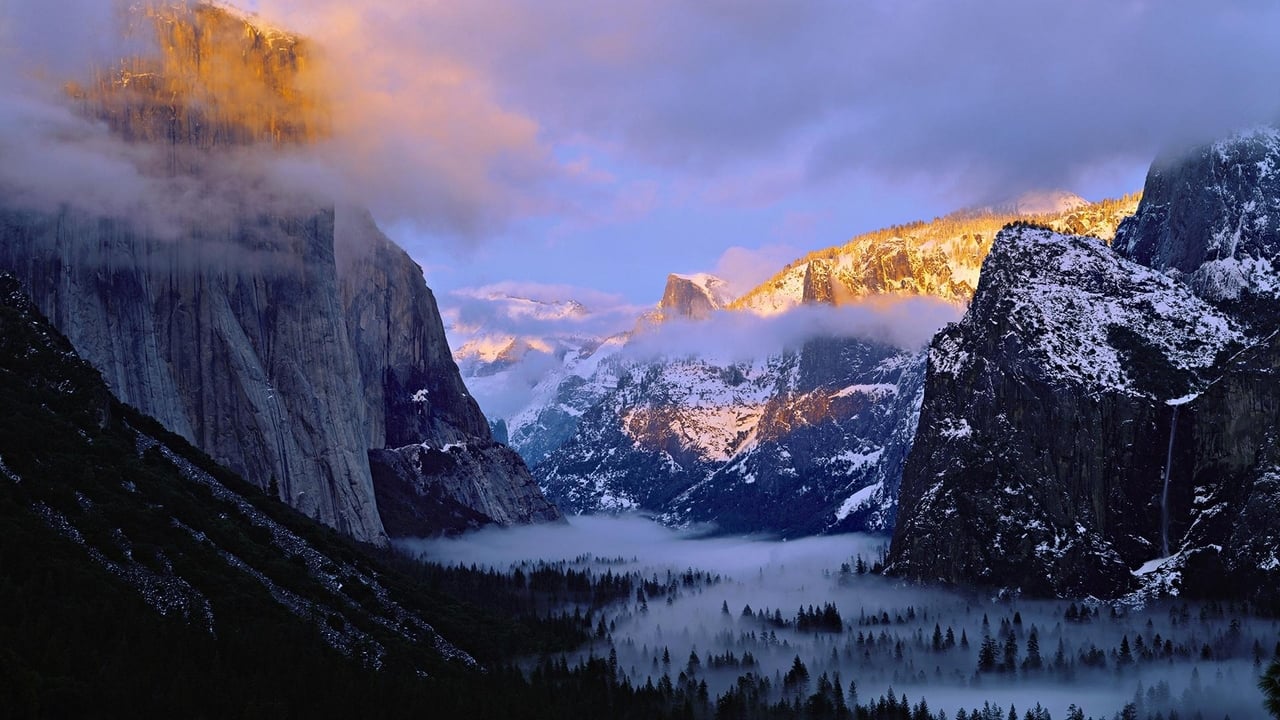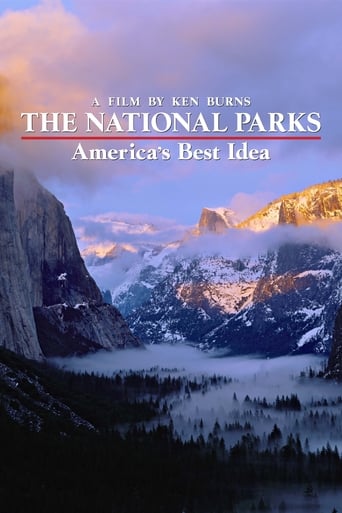

Purely Joyful Movie!
... View MoreIntense, gripping, stylish and poignant
... View MoreFantastic!
... View MoreIt’s fine. It's literally the definition of a fine movie. You’ve seen it before, you know every beat and outcome before the characters even do. Only question is how much escapism you’re looking for.
... View MoreI had no desire to return to the US until I saw this documentary. Whilst I loathe what most of America stands for, (money, guns, greed and religious fervour.....yes, I'm generalising), I do say I admire the appreciation and position National Parks hold in the American psyche. This documentary is a reflection of that position and is beautifully told. I am a fan of the way Burn's tells his stories. I find them simple, poignant and seamlessly told. Burns is a master craftsman and while many may criticise his condemnation of American action at times, I feel he is trying to say - let's not repeat the mistakes of our forefathers by forgetting what has gone before.As for John Muir, Teddy Roosevelt and Co., their contributions should, and have been celebrated appropriately. I have since returned to the US and been to three National Parks. And to Ken Burns, I am grateful for the fact I did.
... View MoreWhile not a travelogue, it nonetheless contains many stunningly beautiful images. And Buzz-kill from Atlanta, put away your thesaurus. We are not impressed. I guess all us hicks that didn't go to Harvard, (funny how everyone who went there or to Yale never fail to mention it within a couple of paragraphs as though that gives their opinions extra credibility), just don't know what to enjoy without being told. Fact is those of us who have visited several of our national treasures can appreciate them for what they are, just that, and glad that the people responsible had the foresight to set them aside before it was too late. As far as I'm concerned, this was a well made documentary and inspires me to visit some of the parks I never thought of prior to watching it. Maybe Buzz-kill should get outside more often.
... View MoreThe scenery on a big HD TV rates a "7", but the horrendous talking heads and the complete one-sidedness (John Muir is a God, Pinchot is the Devil) viewpoint of the program rates a "1".The pacing was just awful. Realizing that Yosemite and Yellowstone are, arguably, the most important National Parks, way too much time and footage was spent on these two spots and far too little was spent on parks such as Isle Royale and the Florida Everglades, to name two of many parks that were given the short shrift.Further, it was jarring to switch from the beautiful scenery to the awful, pedantic and hard to watch commentators. Particularly annoying was talking bobble head William Cronon, who's constant head shaking was reminiscent of the girl in the clip from Gumnaam that's at the beginning of Ghost World (check it out on youtube). Carl Pope of the Sierra Club, with his grating voice, did nothing to further his organization's cause. Revenge of the Nerds came to mind in watching these commentators.Also, the overly dramatic, painfully slow reading of many boring letters did little to help the narrative.I really wanted to like this. I believe that the National Parks are very important, but this dreadful waste of 12 hours did nothing for this viewer.
... View MoreI want to like Ken Burns' films. I really, really want to like Ken Burns's films. And yet—overall, National Parks: America's Best Idea showcases some of the best things about Burns—but alas more of the bad things.Let's start with the good. The park photography is splendid. Burns is as ever a master of the use of panned still images—a technique he pioneered, and which now appears to be in the visual vocabulary of every documentary director. There is quite a lot of interesting information scattered over the 12 hours of this documentary.But: Burns' most consistently interesting work—Empire of the Air, Horatio's Drive, The Shakers—has been in shorter films. The multi-episode long form brings out stretches of tedium and long and pointless digressions. To name several in National Parks—the Marion Anderson and Martin Luther King segments (justified by the happenstance that the Park Service manages the Lincoln Memorial); the segment about the couple who visited many different parks; and a great many of the "witnesses" or talking heads.There is however a much deeper problem than discursiveness or peripheral topics. When I was at Harvard Business School in the early 1980s, one of my good friends was a post-doctoral student in earth sciences across the river. One evening, he told me "You are not going to believe this. The other day, I was at a faculty cocktail party—and overheard one faculty member say 'Don't you think that we have lost so much in going beyond the hunter-gatherer phase?'" In a nutshell, that is a splendid indicator of the mentality of Burns' core audience—a varying mix of snobbishness, neo-primitivism, nature worship, and general left-wing politics. Left-wing politics, you say? The enviro-version--"corporate greed". If that weren't a worn out theme--particularly to anyone with a shred of economic understanding.The intellectual underpinning of Natural Parks fits with much of this complex of ideas. The presiding genius, the core thinker behind the film is John Muir, the naturalist who was largely responsible for the creation of Yosemite Natural Park. One becomes terribly tired of Muir. From Thoreau, he inherits the philosophic error—one might say curse—of solipsism. He couples that with a kind of Transcendental nature worship—for Muir, to say that Yosemite was a cathedral was not a metaphor, it was a statement of fact. Burns takes that point of view and never questions its validity.We do have discussions of the two points of view around which national park policy revolves—on the one hand, accessibility and use by the American public, and, on the other, the wilderness, don't touch it at all, Thoreau-Muir-Sierra Club-Wilderness Society philosophy. There ought to be a healthy tension between the two—and yet Burns unquestioningly gravitate towards the latter. There is something deeply anti-democratic about this position—only the chosen few willing to abase themselves may be permitted a view of the wonders of these areas.In fact, National Parks very neatly shows that a religious point of view has nothing to do with organized religion. In the film, a nature-worship reverence is posited as the "real" experience of the parks—or what should be the experience of the parts. Speaking personally, I have visited some 16 major parks and national monuments, and had a variety of reactions—aesthetic delight, scientific curiosity, scientific insight—but never nature worship reverence. And I daresay that I am not alone. And I daresay that my reaction is not invalid.In a very real sense, National Parks is a polemic for the nature worship that begins with Thoreau and Muir—neither of them first rate philosophers, and neither of them first rate scientists beyond the descriptive and observational. This, perhaps, is what I dislike the most about this film. (Disclaimer: I was trained as a physicist.) A few other cavils—was it really necessary for virtually all of the male talking heads to wear flannel shirts and be bearded up to the eyebrows—a la Muir? And who are these "historians" and "writers"? You could have sliced out a good deal of the commentary and had a much better 8 hours film.If you like this sort of a thing—well, that is the sort of thing you like. But I grow increasingly weary of literal pieties wrapped in pretty pictures—which seems to be Burns' inevitable direction. National Parks is a beautiful slide show with a tenth rate narration.
... View More